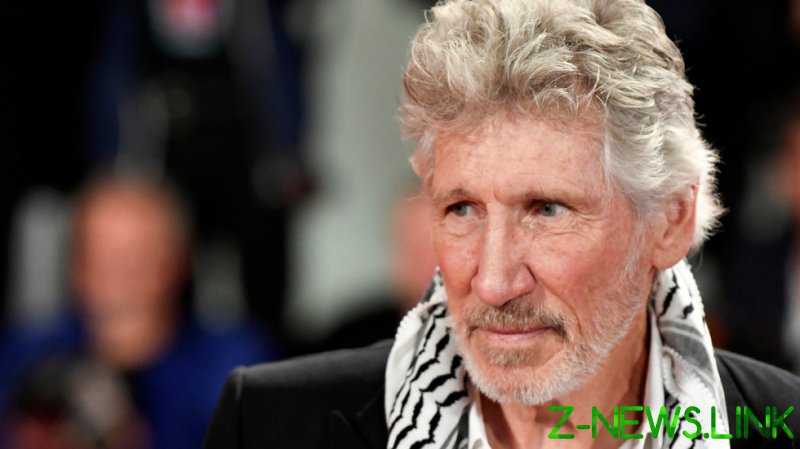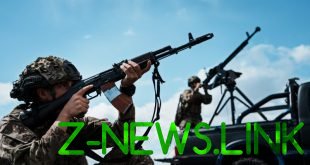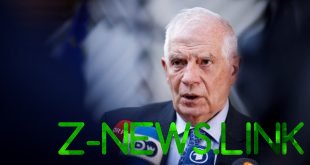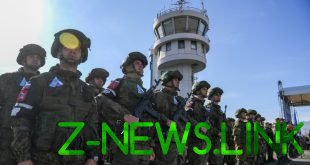
In August this year, environmental pressure group Amazon Watch broadcast an online panel discussion in support of Steven Donziger, a crusading attorney who dared try to hold US energy giant Chevron to account for widespread environmental destruction in the Amazon, and was left fighting for his life, livelihood and liberty as a result.
In February 2011, Chevron was found liable by an Ecuadorian court for contamination resulting from crude oil production in the region by its subsidiary Texaco between 1964 and 1992, in a legal action that was many years in the making and led by Donziger.
Chevron is yet to pay a penny of the settlement though, for the landmark ruling was overturned in March 2014 by a US Federal Court on highly dubious grounds – in reaching his decision, presiding Judge Lewis A. Kaplan relied heavily on the evidence of a former Ecuadorian justice who subsequently admitted to fabricating his testimony. Donziger has since been charged with contempt of court and sat under house arrest for over a year awaiting trial.
Dozinger himself was present on the Amazon Watch webinar that August evening, and was joined by a number of prominent campaigners, including Simon Taylor, founder of NGO Global Witness, and Roger Waters, co-founder of rock institution Pink Floyd.
The talk was widely promoted in advance by a number of prominent human rights activists, and NGOs, perhaps most prominently Amnesty International.
However, the organization’s endorsement triggered a deluge of criticism on social media from a number of notorious advocates for regime change in Syria. This led to a post advertising the webinar published by Amnesty USA’s official Twitter account the day before broadcast to mysteriously disappear without explanation.
In response to one critic, Amnesty UK Campaigns Manager Kristyan Benedict said promoting the talk was “not good at all” and confirmed that the offending tweet had “been deleted.”
A leaked recording of a September 25 phone call between Waters and two senior staffers at Amnesty International USA – Matt Vogel, head of artist relations, and Tamara Draut, chief impact officer – sheds fascinating light on the episode.
At the start of the conversation, Waters recalls he was not only informed Amnesty would promote the panel discussion on Twitter in advance, but also personally retweeted the endorsement so it reached his circa 375,000 followers at the organization’s express request.
However, an associate informed him just before the webinar began that they couldn’t locate the post. When the talk was over, he went about getting to the bottom of the tweet’s absence.
After conducting “a bit of sleuthing,” he determined that the removal followed pressure being brought to bear by a number of individuals, in particular his “old adversary” Eliot Higgins, founder of controversial website Bellingcat, due to Waters’ views on the Syrian Civil Defense, aka White Helmets. Seeking answers, he attempted to reach out to Amnesty, but was repeatedly stonewalled before finally being put in touch with Vogel and Draut.
In response, Draut confirmed that the tweet’s removal was indeed prompted by a “difference of opinion” on the White Helmets. “We believe they’re really champions for human rights, and have fought for their protection and freedom. When the tweet went up on our end, it wasn’t fully vetted as it should’ve been, and immediately we heard from folks in the White Helmets, asking why we were promoting you, due to comments you’ve made about them. We also heard from other Syrian human rights activists, who were quite hurt by our support of you…” she began, before Waters interrupts, asking what relevance his views on the group has to “the plight of rainforest dwellers in northern Ecuador.”
“People interpreted our promotion of an event at which you were speaking as promoting your position on the White Helmets. I got involved in this process too late, I wouldn’t have taken down the tweet, that’s not the policy I like to follow, I would’ve much rather dealt with this openly and honestly…” Draut explains.
Waters made headlines the world over in April 2018, when he stopped mid-set during a concert in Barcelona to talk about a chemical weapons attack in Douma, Syria, which had allegedly taken place six days earlier.
Branding the White Helmets a “fake organization” creating “propaganda for jihadists and terrorists,” he suggested that Western public opinion was being manipulated in order that “we would be encouraged to encourage our governments to go and start dropping bombs on people.” Mere hours later, his prediction came to pass, as France, the UK and US carried out a series of military strikes against multiple government sites in the country.
In May 2019, Waters was again the subject of intense criticism when he claimed on his official Facebook page that a leaked document had vindicated his position. The file in question was an engineering report produced by an Organization for the Prevention of Chemical Weapons (OPCW) fact-finding team that visited Douma in the days following the contested strike, which concluded there was a “higher probability” that cylinders found at two locations in Douma, alleged by the White Helmets to have been dropped from Syrian Air Force helicopters, were “manually placed… rather than being delivered from aircraft.”
Photos of the cylinders circulated widely in the Western media and on social networks in the wake of the claimed incident. Such images, along with footage of Douma residents being hosed down in hospitals, children seemingly foaming at the mouth, and piles of dead bodies in a housing complex – all produced and disseminated by the White Helmets – were all damning evidence offered in favor of the idea that the Syrian government had targeted civilians with chemical weapons, a notion which in turn provided Paris, London and Washington with a pretext for military intervention.
The OPCW team’s dissenting appraisal was, for reasons unclear, entirely unmentioned in the organization’s final report on Douma, published two months prior to Waters’ Facebook post.
Despite making few if any public comments about the White Helmets or the ongoing crisis in Syria since, Waters has nonetheless been subject to an unending deluge of online abuse from their Western supporters.
Back on the call, an indignant Waters cites a since-deleted tweet from Eliot Higgins, which stated that Amnesty International “needs to explain why Roger Waters is an appropriate person to talk about human rights.” Rather than responding constructively to the question, the organization opted to simply yield to critical pressure.
Waters said: “Why am I an appropriate person? Because I’ve been a great advocate for human rights all my life. The White Helmets were clearly involved in something really dodgy. Amnesty has never come out and said, ‘It’s been brought to our attention the video the White Helmets made in Douma was absolutely fake.’
“Doctors there have said not only were there no deaths that we know about that day, but the people in the hospital were complaining of dust inhalation, not being gassed. Do you still believe that video, do you believe that was real?”
Draut responded: “I appreciate your desire to defend your opinion, I don’t think it’s productive… all I can tell you is you asked why the tweet was taken down, and it was taken down because of the immediate backlash we received, which is in direct opposition to our position on the White Helmets, and is very hurtful… the position of Amnesty wasn’t that you don’t have any right or expertise or commitment to human rights to speak on that panel.”
Waters then countered: “Why didn’t you explain why I am an appropriate person, and say you weren’t going to delete the tweet, because the webinar was important?!
“When I was growing up, you pretended to care about human rights – you’ve demonstrated to me in this conversation that you don’t, particularly by refusing to answer my simple question about the video made by the White Helmets in Douma!” he said.
In response, Vogel hurriedly stepped in, reassuring Waters that Amnesty supports Donziger’s “very critical case,” and he personally considered the webinar “a very important conversation to have.”
“So this is just a blacklisting of me?! This is you blacklisting me on the basis of evidence given by a scumbag like Eliot Higgins! That’s what you’re telling me now!” Waters contended.
“You’ve made a special exception in my case?! To blacklist me, and take a tweet mentioning me down, on the basis of trolls sending in their negative feelings about me – because I don’t subscribe to their opinions about regime change in Syria, and the non-existent chemical attack in Douma, Amnesty International will blacklist me and prevent me from acting for the people of Ecuador, in my capacity as a human rights activist. Wow! What a terrible indictment of your organization, if you don’t mind me saying!”
Draut then returns to the conversation, apologizing outright for the tweet’s removal, and claiming Waters is “in no way” blacklisted by Amnesty, despite the organization “disagreeing” with his position on the White Helmets.
Thanking her, Waters asked whether Amnesty was willing to publicly explain how and why its promotion of the webinar was retracted, an act that was “entirely outside the boundaries that Amnesty International pretends to hold sacred,” and apologize to Stephen Donziger and the Ecuadorian people. No commitment to do so was forthcoming from either Amnesty representative on the call, and no explanation or apology for the deletion has been offered by the organization as of October 12.
While Waters’ public comments in April 2018 have clearly made him a target for public vilification and censorship, a great many documents leaked since then strongly suggest his original suspicions were highly adroit – and the OPCW’s conclusions that there were “reasonable grounds” to believe a chemical weapons attack had occurred in Douma, and “the toxic chemical was likely molecular chlorine,” were directly contrary to the overwhelming majority of the evidence which its investigators collected.
A vast number of the organization’s previously suppressed internal files are now in the public domain, and while they’ve been universally ignored by mainstream journalists, they tell a damning story.
For instance, the documents demonstrate that in July 2018, OPCW chiefs secretly removed all staff from the investigation who had actually visited Douma, bar a single paramedic. Responsibility for completing the probe was handed to an entirely separate team, which had instead traveled to Turkey, and exclusively taken witness statements and soil samples hand-picked by the White Helmets, and staff who hadn’t participated in either mission.
The conclusions drawn from this evidence differed sharply from evidence collected in Syria, and this incongruity was repeatedly noted in a draft report – references absent entirely from the version presented to the public.
Other key facts from the draft also indicate OPCW investigators quickly ruled out that a chemical attack of any kind had taken place. For one, no samples of any nerve agent – which the White Helmets, Syrian American Medical Society, Union of Medical Care and Relief Organizations and British and American governments all claimed had been employed in the attack – were found anywhere on the site, and this had been established by June 2018.
Moreover, at the OPCW’s request, four chemical weapons experts conducted a toxicology review of available evidence from the incident. They concluded that the observed symptoms of alleged victims in Douma, as depicted in White Helmets-provided footage from the incident, “were inconsistent with exposure to chlorine” and “no other obvious candidate chemical causing the symptoms could be identified.”
Further undermining the OPCW’s public conclusions, the organization’s tests of samples collected in Douma showed that chlorine compounds were detected overwhelmingly at trace quantities, in the parts-per-billion range – a finding referenced in the aforementioned draft, again absent from the version deemed fit for public consumption.
At a January 2020 meeting of the United Nations Security Council, former OPCW inspection team leader Ian Henderson, an 11-year veteran of the organization who was part of the Douma fact-finding mission’s inspection team, testified that the investigation into the alleged incident unambiguously concluded that no chemical attack had taken place, and suggested it was likely staged by the Syrian opposition, in order to trigger Western military intervention.
That the White Helmets are a Western construct disseminating propaganda to facilitate governments dropping bombs on people, as per Roger Waters’ phrase, was amply confirmed by the recent release of internal UK Foreign & Commonwealth Office (FCO) files by hacktivist collective Anonymous.
Among other things, the documents expose a vast and extremely well-funded multi-year operation to produce propaganda targeted both at Syrians and Western populations, forging perceptions of a coherent, credible, moderate opposition to the government of Bashar Assad and extremist groups such as Islamic State alike, and to cultivate support for British-facilitated regime change in the country.
Under the auspices of this project, ARK International – a “conflict transformation and stabilization consultancy” founded by Alistair Harris, a veteran FCO diplomat – developed and ran an “internationally-focused communications campaign designed to raise global awareness” of the White Helmets.
“ARK created and continues to run a Twitter feed and Facebook page on behalf of the Syrian Civil Defense teams, posting photos and updates on their activities in English throughout the day. This has received high-profile recognition from international websites and commentators… New York-based advocacy group, the Syria Campaign, reached out to the civil defenders through their Twitter feed, and following subsequent discussions with ARK, selected the civil defense to front its campaign to keep Syria in the news [emphasis added],” a leaked internal document states.
Intriguingly, ARK also extensively trained and equipped over 150 “activists” in Syria on “camera handling, lighting, sound, interviewing, filming a story,” post-production techniques including “video and sound editing and software, voice-over, scriptwriting,” and “graphics and 2D and 3D animation design and software.”
Students were even instructed in practical propaganda theory – namely “target audience identification, qualitative and quantitative techniques, media and media narrative analysis and monitoring,”“behavioral identification/understanding,” “campaign planning,” “behavior, behavioral change, and how communications can influence it [emphasis added],” and more.
Content produced by trainees was then fed to ARK’s “well-established contacts” at media outlets including Al Jazeera, the BBC, CNN, The Guardian, the New York Times and Reuters, in some cases the firm’s students were hired directly as on-the-ground ‘stringers’ by these organizations, producing reports and conducting interviews.
The files offer no indication that ARK’s trainees were further schooled in how to stage chemical weapons attacks for a Western audience. However, the techniques they learned could clearly so easily be used and abused for such a purpose – making the question of whether they did so worthy of intensive further investigation.
Think your friends would be interested? Share this story!
The statements, views and opinions expressed in this column are solely those of the author and do not necessarily represent those of RT.
© 2020, paradox. All rights reserved.





